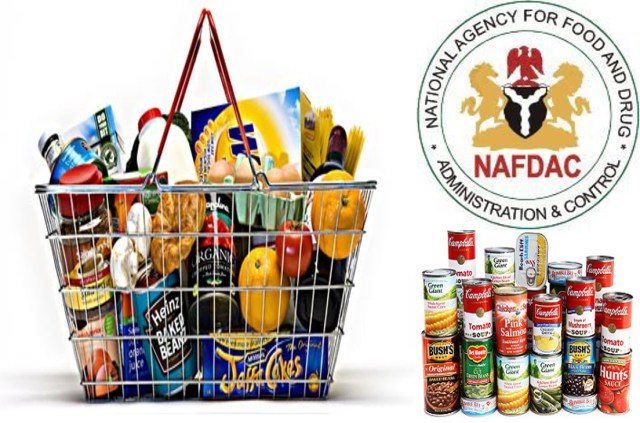
In the similitude of a parable that says a tree doesn’t make a forest so also, the government cannot do everything and be at every place at the same time. It is pretty necessary to saddle responsibilities on organize bodies otherwise called agencies and ministry so as to control the flow of sanity across all endeavors.
There is no trespass in the land that has no law, but where there is law there are punishments for defaulters. Both the law and consequences in case of default are seer by a set of particular bodies to enforce the speculated law in their area of operation.
In Nigeria, there are many Federal Government agencies responsible for certain regulatory and enforcement of order among which we have NAFDAC. National Agency for Food and Drugs Administration and Control.
A lot of people may think NAFDAC only deals with fake drugs, and while it is true that a lot of the efforts of NAFDAC are spent on combating counterfeit drugs, still that is not all they do. In this article, we will discuss the powers and functions of NAFDAC as well as the goods under their regulations.
NAFDAC is an Independent agency inaugurated as a supervising body of the Federal Government of Nigeria to oversees food and drug administration and control of his populace. The executive departments are the major operating units of the federal government, but there are many other agencies that collaborate and have important responsibilities for keeping the government and the economy working smoothly. Other units provide special services, either to the government or to the people.
The National Agency for Food Drug Administration and Control (NAFDAC) was set up in 1993 to regulate and control the importation, exportation, manufacture, advertisement, distribution, sale and use of food, drugs, cosmetics, medical devices, bottled water and chemicals in Nigeria.
NAFDAC is responsible for regulating and controlling the import, export, manufacture, advertisement, distribution, sale and use of food, drugs, cosmetics, medical devices, bottled water, and chemicals. It is also the function of NAFDAC to designate specifications for maintaining the quality of food, drugs, cosmetics, medical devices, bottled water and chemicals, and their raw material, as well as to set these standards for the production processes in the factories and other establishments. Note, the agency regulates the items even if for personal use provided you are bringing in to Nigeria.
The National Agency for Food and Drug Administration and Control (NAFDAC) was solemnly established to fight the creation of illegal and fake substances that are dangerous to sound health and well-being of Nigerians. As Nigerian is not limited to locally produced products, this body is also responsible for regulating the exportation, importation, manufacture and registration of products such as drugs, chemicals, consumable goods, cosmetics, biological, and medical services which were produced in or outside Nigeria.
The NAFDAC Requirements for production or importation of food, drugs or consumable goods in Nigeria are dependent on whether such items are produced locally or abroad. In the continuous effort to ensure healthy living through this agency, The Federal Government of Nigeria has put in place registration procedures that must be completed and complied with by any manufacturer, importer, exporter, and sellers of food and drugs products.
It is therefore become unlawful to promote or market any product or consumable goods in Nigeria to the general public without a due registration with the NAFDAC according to the law establishing the Agency (NAFDAC Act). Where a company is registered for the purpose of importing or manufacturing food or drugs or consumable products, such products must be registered with NAFDAC.
As a responsibility saddled on the agency to checkmate consumable products in Nigeria, the body has published goods under the check for proper scrutiny and cautions for importers and among the goods under their regulation are; though not limited to the following:
1. Pesticides
2. Cosmetics
3. Non-nutritive sweeteners
4. Drugs
5. Wine
6. Spirit drink
7. Soft drinks
8. Repackaged food, water and ice labeling
9. Milk and diary
10. Fruit juice and nectar
11. Food products
12. Fats and oil
13. Cocoa and cocoa products
14. Herbal medicines
15. Food additives
16. Chemicals, etc.
It is, therefore, necessary to consult before procuring any of the above identified and any suspected products to be ship to Nigeria to avoid any form of loss.
As a responsive freight forwarder with a high sense of responsibility to our valued customers and prospective customers, we are rendering free advisory service with the inquiries on this subject matters is inclusive. Why not speak with our customer care representative for further information? The service is free and you will be glad you did.
Written and posted by:
VHI Cargo
12, Joseph Odunlami Street,
Off Thomas Salako Street,
Ogba Bus Stop, Ikeja, Lagos
Email: info@valuehandlers.com
Phones: 8:30am- 5:00pm 08032241768, 08182072412 (WhatsApp)
www.valuehandlers.com
Follow us for regular update:
www.facebook.com/valuehandlers
www.linkedin.com/valuehandlers
www.twitter.com/valuehandlers
www.skype.com/valuehandlers
WhatsApp: 08032241768
About the Blogger: Valuehandlers is a Supply Chain Management Company Specializes in Air & Sea Freight Shipping, Customs clearing & cargo Servicing from and to 80 countries.
Get Quote now
In this day of Coronavirus, we further pledge our utmost commitment to serve you better in the area of logistics. Shall we abandon our responsibility and run away when there are need to be attended to? Valuehandlers International says NO, for shipping is our life. The reason for our existence, we also hope you appreciate our commitment to this noble course.
